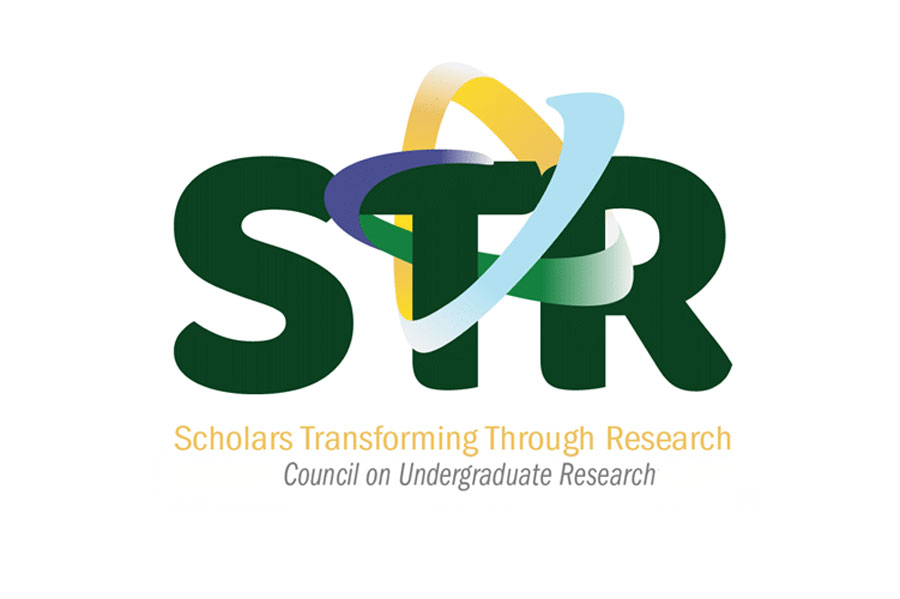Radford University tops participation in Scholars Transforming Through Research, four years running
by Justin Ward
Only 38 teams were selected nationwide this year, and Radford fielded the largest representation, marking four consecutive years of participation unmatched by any other institution.

A group of Radford University students and mentors just added another milestone to the record book. Radford had four teams selected for the Council on Undergraduate Research’s (CUR) Scholars Transforming Through Research (STR) program, among just 38 teams chosen nationwide, giving the university the largest single-institution representation this year and extending its distinction as the only institution to participate in the program every year since its launch.
“Having representation among the 38 teams selected tells a powerful story about our students and the mentors who champion them,” said Bethany Usher, provost and senior vice president for Academic Affairs. “They’re showing how undergraduate research can travel beyond the lab or studio to shape policy and practice. That’s the kind of learning that changes lives and demonstrates Radford’s commitment to educating our students to lead thriving communities.”
Unlike many competitions, STR puts the student voice at the center. Teams craft applications that explain the real-world stakes of their projects and how evidence can inform policy and community solutions. That emphasis is a natural fit for Radford, where students regularly translate faculty-mentored research into action.
“This recognition speaks volumes about the talent of our students and the pivotal role their faculty mentors play,” said Joe Wirgau, director of the Office of Undergraduate Research (OURS), who announced the news to participants with what he described as “a smile plastered on my face all day.”
The 2025 STR cohort:
- Students and mentors: Abigail Craig, Lou O’Neil, Caleb Frankenberger, Jessica Handy, Jessica McCann, Kayla Fields, Lily Backus, Natalie Infante, Nicholas Beach, Patrick Kielawa and Rhett Herman, professor of physics; Carlee Bradbury, professor of art; Daniel Berry, associate professor of psychology; Naveen Joseph, assistant professor of geospatial and earth science.
- Program scope: One of just 38 teams nationwide, with Radford fielding the largest single-institution cohort this year.
Radford’s trajectory in STR traces a line of successful student-faculty teams:
- 2022: Chris Blankenship and Chet Bhatta, associate professor of biology.
- 2023: Ashley Glover, Mira Smith, Sekyung Jang, associate professor and director of music therapy; Stockton Maxwell, professor and chair of geology and geospatial science.
- 2024: Mark Daniel, Jovanny Machuca Tiznado, Grace Parton, Annie Riffee, Quentin Shivnen, Eni Szabad, Jason Davis, associate director of the Honors College and professor of biology; Sandy Liss, associate professor of physics. Radford was the only Virginia school accepted that year.
- 2025: This year’s record-setting cohort, listed above.
Together, those teams make Radford the national leader in STR participation, a distinction that underscores a culture where undergraduate research is both expected and supported.
STR isn’t just about presenting findings; it’s about shaping conversations in communities and with decision-makers. Radford teams have addressed issues that range from regional needs to global challenges, work that “creates new knowledge that is impactful and shapes our communities and world,” as Wirgau put it.
To remove barriers and keep the focus on learning and advocacy, OURS will cover all travel expenses for Radford’s STR participants this year. That investment reflects a campus-wide commitment to experiential learning, whether in laboratories and studios, field sites across Southwest Virginia or national forums where student scholars learn to translate data into decisions.